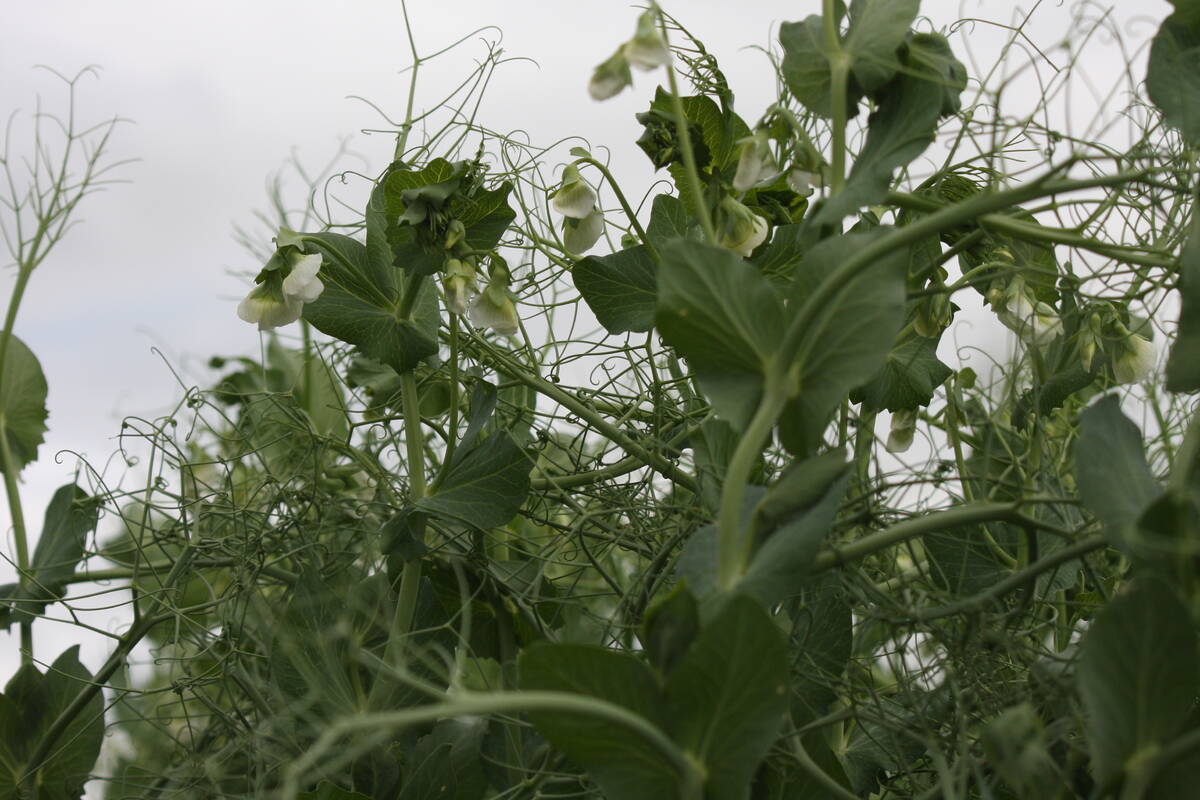In the market for crop | Richardson expands Yorkton, Sask., plant and Quebec company buys more canola
Two Canadian crushers are buying more canola this year.
Richardson International just completed a $30 million expansion project at its processing plant in Yorkton, Sask.
The facility started processing 3,000 tonnes of canola per day April 1, a 25 percent increase from the previous daily crush volumes.
“Combined with strong origination capability through our Richardson Pioneer network across the Prairies, we are in an excellent position to keep up with ever-growing demand for canola oil,” Darwin Sobkow, Richardson’s executive vice-president of agribusiness operations and processing, said in a news release.
Read Also

High pea yields shock farmers
There is going to be a massive pea carryout at the end of this crop year.
The company also added a third truck receiving pit and offers a fully automated delivery system.
Richardson now has 1.5 million tonnes of annual canola crush capacity with its plants in Yorkton and Lethbridge. The company is considering expanding crush capacity at its Lethbridge plant.
“Canola is a true Canadian success story, and we are committed to continuing to increase our presence in the market to meet growing demand for its products,” said Sobkow.
Meanwhile, a Quebec oilseed crushing facility is also increasing its purchases of western Canadian canola.
The TRT-ETGO plant at the Port of Becancour, halfway between Montreal and Quebec City, is a swing plant that in eight hours can switch between processing soybeans and canola.
The facility has one million tonnes of crush capacity and can produce 1,200 tonnes of oil per day.
The Quebec plant was initially a joint venture between FELDA Global Ventures Holdings and Bunge, but since the fourth quarter of 2013 it has been solely owned by FELDA.
It was built in 2011 but hasn’t been operating near full capacity because of seed shortages and a slow increase in production.
The facility operated at 40 percent capacity last year, but that increased to 50 percent during the first quarter of this year.
“If the rail car issues were not there, we would have run at between 85 and 95 percent capacity in Q1,” said Karu Munusamy, president of TRT-ETGO.
“We had bought all the seeds, but the elevators failed to deliver.”
The supply situation is slowly starting to improve. The plant has been operating at 80 percent capacity in the second quarter and should be at 90 to 95 percent capacity in the second half of the year.
Given current crush margins, the plan is to have canola account for 55 to 60 percent of the plant’s raw material and soybeans the remainder.
That means the plant would need to buy up to 600,000 tonnes of canola annually from Western Canada.
“The volume can go even higher depending on the crush margin,” said Munusamy.
The firm has a trading office in Winnipeg, which buys canola from grain companies operating in Western Canada. The crusher would like to form a strategic alliance with one or more of those companies.
The canola can be shipped to the plant by rail or by boat from elevators in Thunder Bay.
TRT-ETGO has a grain buying operation in Ontario to purchase soybeans from Ontario and Manitoba and an office in Quebec to buy soybeans and the small amount of canola grown in that province.
The company recently announced it was expanding its storage capacity. It has 30,000 tonnes of grain storage, 30,000 tonnes of oil storage and 15,000 tonnes of meal storage.
The plan is to build another 50,000 tonnes of grain storage and 15,000 tonnes of meal storage.
Munusamy said it will allow the facility to be a more active buyer during the harvest season, bring in grain when available from South America, the United States and the European Union and cope better when there are transportation bottlenecks.
The oil is sold to biodiesel customers in the EU and South America. The Port of Becancour is the second closest port to the Atlantic Ocean next to the Port of Quebec.
It also ships refined, bleached and deodorized oil to food manufacturers and processors in New York, New Jersey, Ontario and Quebec.
Meal is sold to dairy and livestock producers in Quebec, Ontario and the United States.
The plant is located close to end-use markets and is in the heart of Canada’s soybean production region. However, it’s a long way from canola country.
“We have two pluses and one minus,” said Munusamy.















